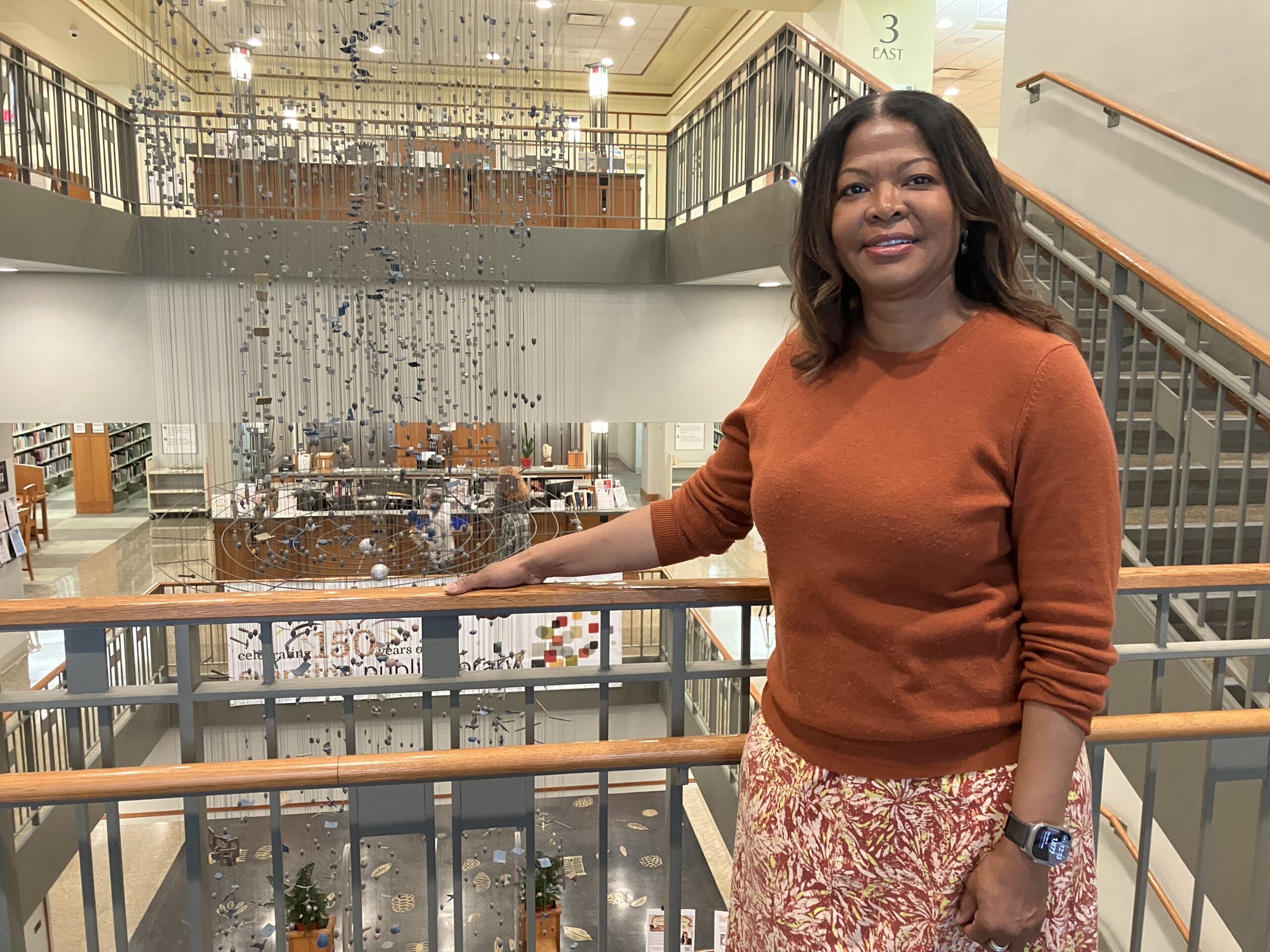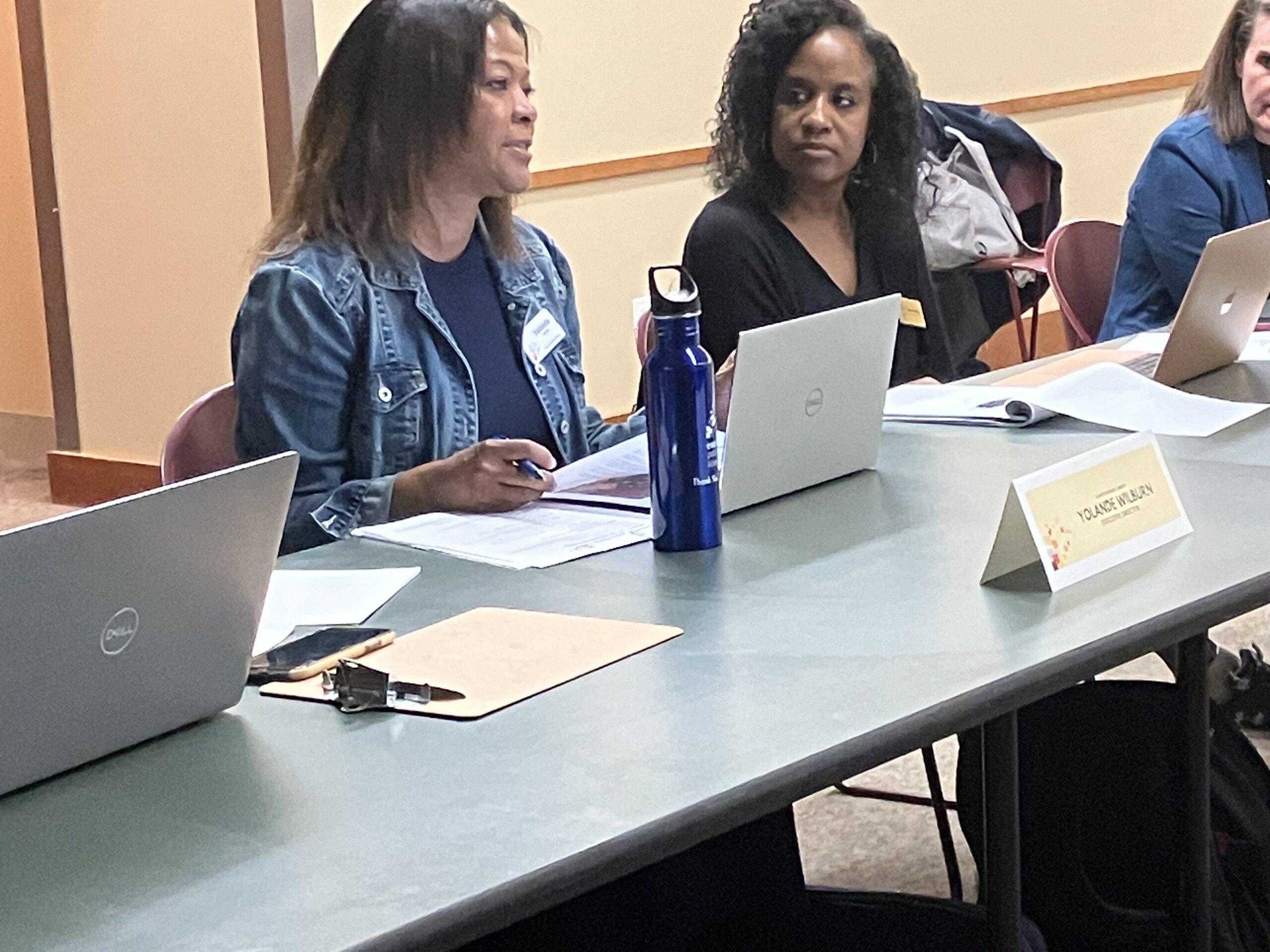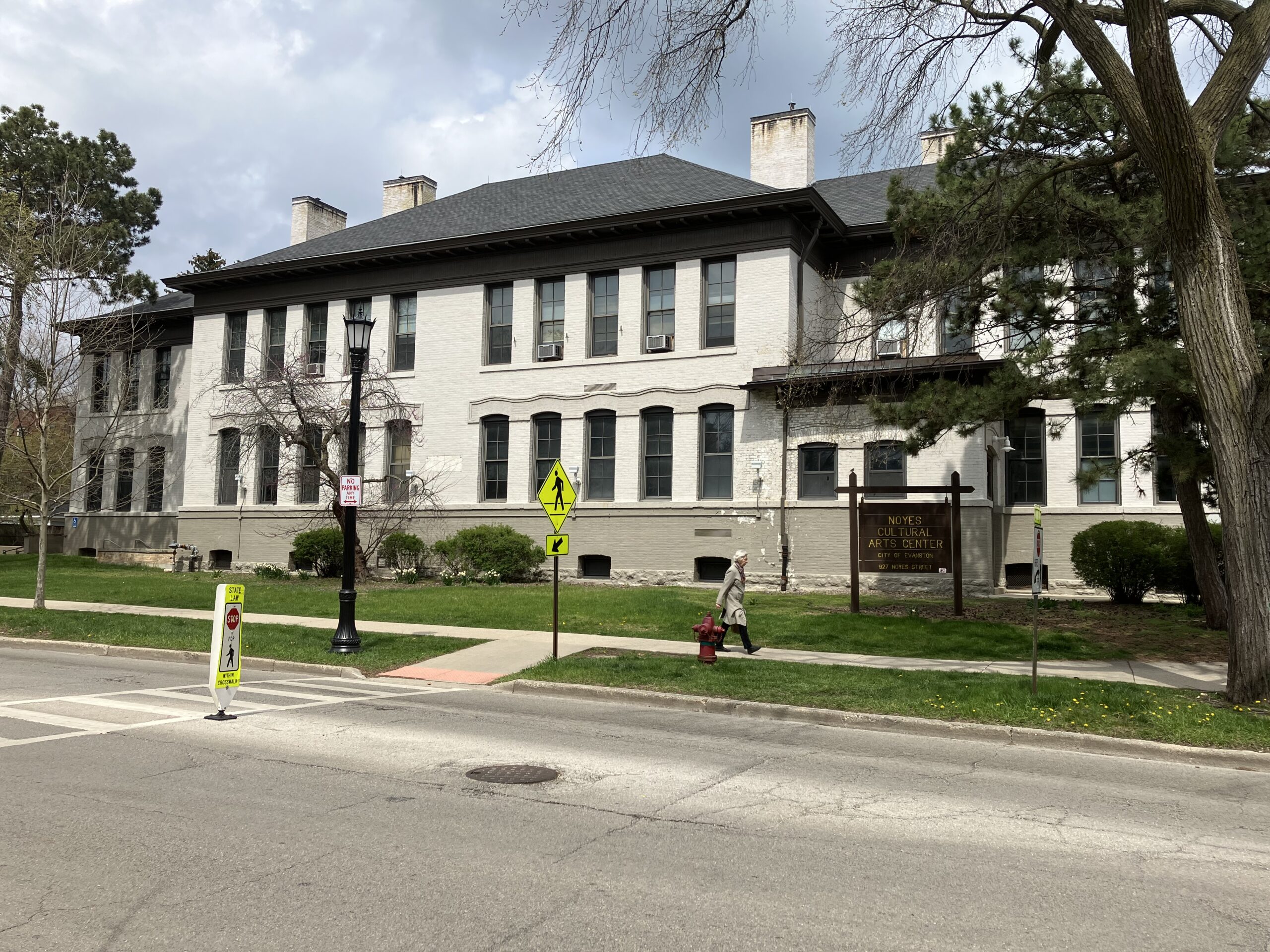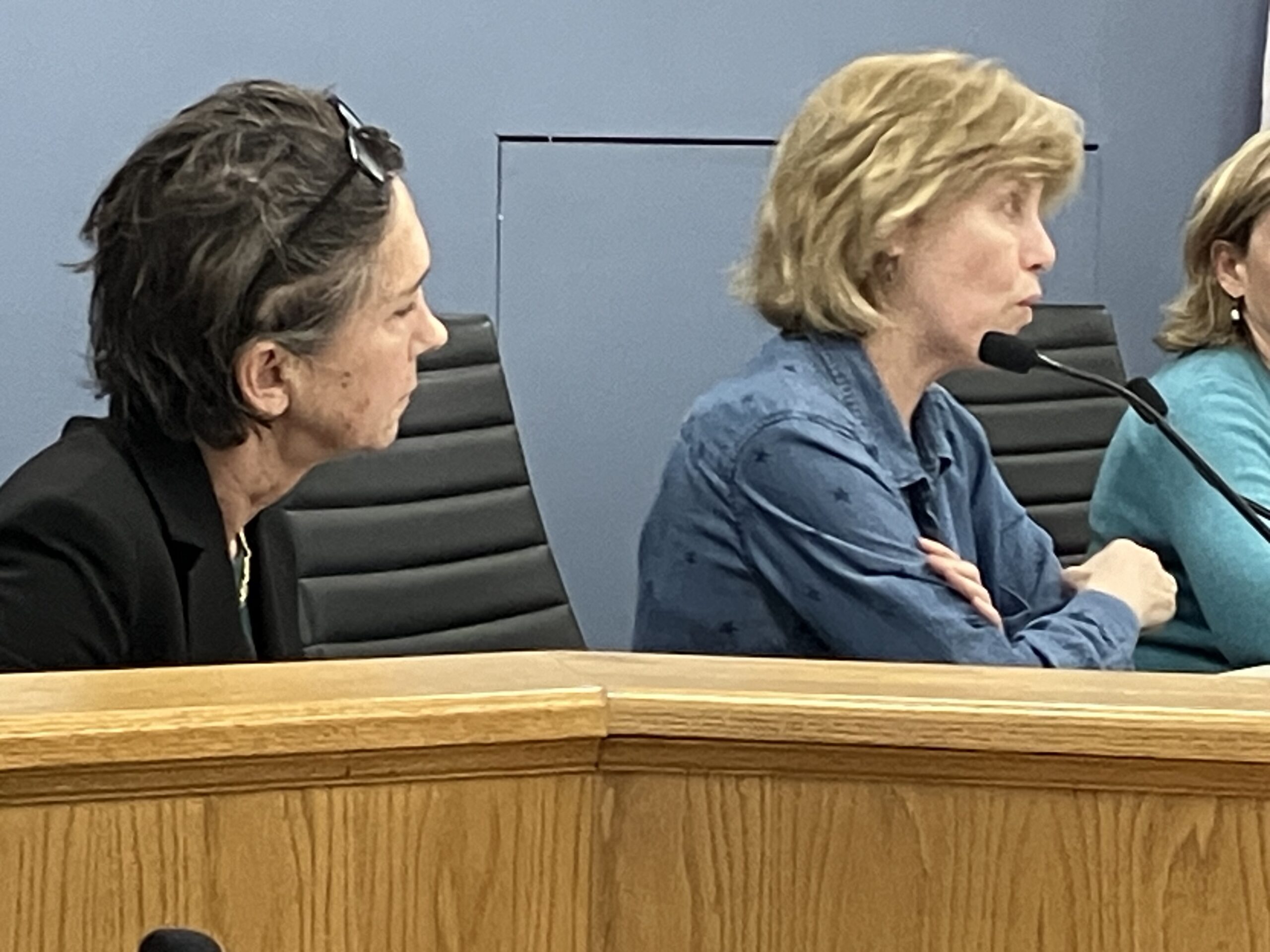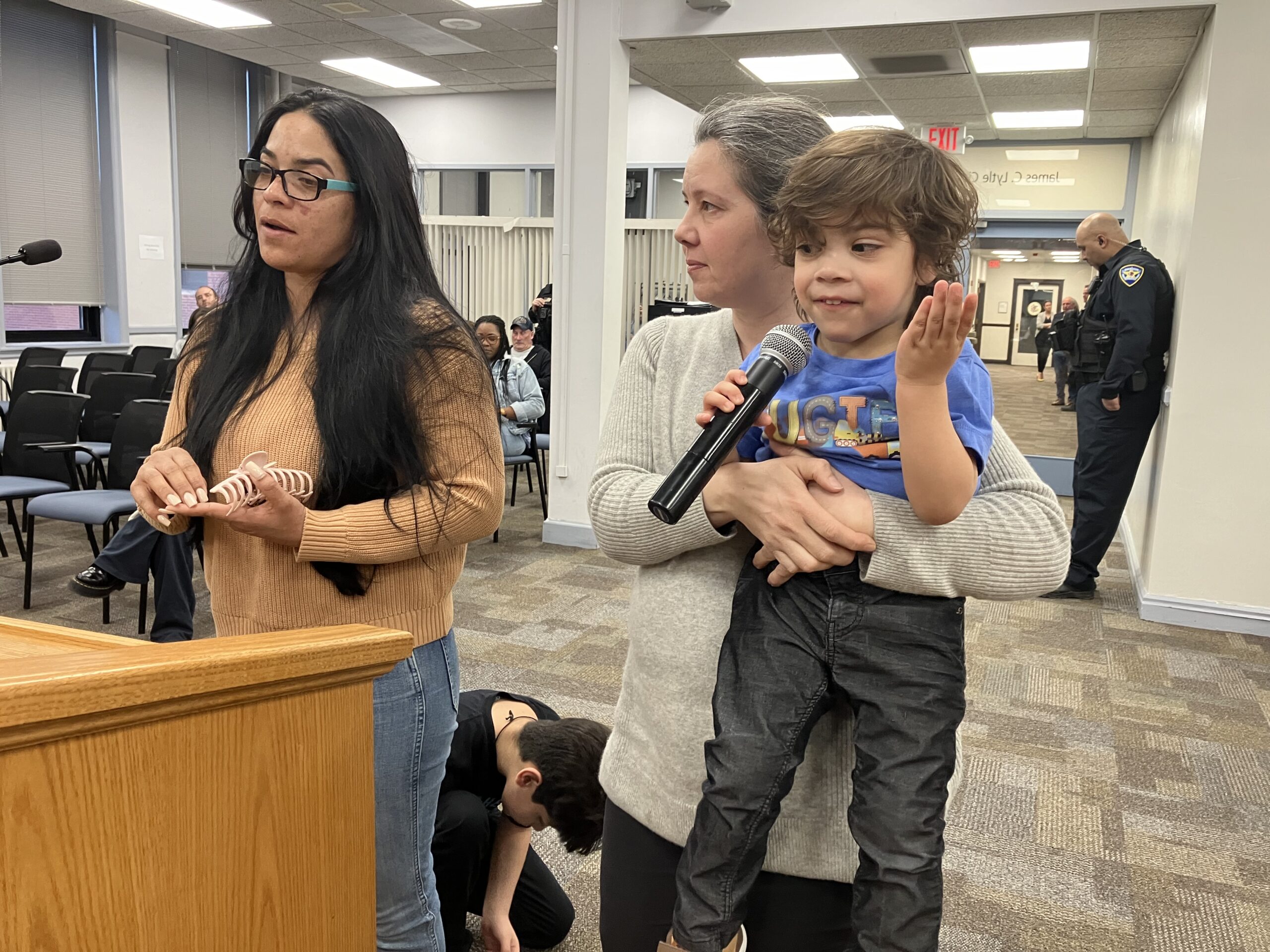By Bob Seidenberg
Yolande Wilburn, the new executive director of the Evanston Public Library system, has spent much her career managing library systems up and down the state of California.
But her path to Evanston’s top job started much closer to home.
“At the Chicago Public Library, when it was in [what is now] the Cultural Center actually,” said Wilburn, said in an interview in her 4th floor office at the main public library, Nov. 21, completing a week in the job as the Library’s new executive director.
“And I was a library kid. I grew up in the library. I spent a lot of time. … I was that kid my mom used to tell me, ‘Put down that book and stop reading!’ because I did. I spent a lot of time reading and learning about the world at libraries.
“Growing up, our family was not extremely wealthy,” she said. “And so with six kids, there wasn’t a lot of money for traveling and taking great vacations, and so my vacation would be to go to the library and check out books on different countries.
“I’d read on them and just learn about them, which really served me well, because I’ve been able to go to a lot of those countries that I only dreamed about and read about as a kid.”
Evanston Public Library trustees named Wilburn as their choice last month, capping a more than 15-month search that included soliciting feedback from residents, staff and volunteers, and developing a detailed job description for the position.
“Her record of strategic planning, budgetary management, and staff development is exactly what is needed to support the extraordinary work our staff do on a daily basis,” said EPL’s Board President Tracy Fulce.
Wilburn succeeded Karen Danczak Lyons, who retired June 17, 2022, after nearly a decade in the job. It’s a homecoming of sorts for Wilburn, whose family lived in Evanston for a while growing up, on Brummel Street, in the southern part of the city.
Her mother lives in Chicago, and she has lots of relatives here.
“I’ve always loved this city and over the years I’ve always come back here,” she said. “So very close ties – and I’m really thrilled to come back.”
First African-American to lead the system
She’s believed to be the first African American to lead the system, a distinction she also held in Santa Cruz, her last job.
“We are living in a different world,” she said when asked in the interview about that role. “I grew up in an environment [where] even though it’s the Chicago Public Library, there were not a lot of librarians of color – right? So I didn’t have a role model, really, who said, ‘Hey, this is a career path for you.’ … So it wasn’t until I got older that I decided, ‘Hey, I’m going to go back to school and get my master’s in library science, and this is a career path that I want to choose.'”
A research project started her on her way
“And really got started on that,” she added, “because I had the opportunity to work for a refuse-and-recycling company, where I served as personnel and public affairs manager and wrote a scholarship program for kids of the three area high schools – which got me back into the library.
“I went to the library to research how I would start a 501(c)(3), and how the scholarship program could be administered,” she said. “And so that really got me thinking about how the library can help so many people. Even if you don’t have a degree or you don’t have the knowledge, all you need is a library card.”
Evanston Public Library trustees in recent years have placed special emphasis on EPL’s commitment to diversity and racial equity. In an extraordinary public apology statement several years ago, officials acknowledged that leadership had placed little importance in the past hiring staff from diverse backgounds. “This, coupled with the failure to adequately support and listen to staff members who could speak to the needs of their diverse communities, resulted in overall passivity in reaching out to those who most need our services,” the statement read.
Responding to that, Wilburn said “I definitely think that equity and inclusion are important, ensuring with our collections and our programs and services that we are being inclusive. And the populations that we serve – we want to make sure we’re representing those populations.
As I said, growing up I would go to the library and not see librarians of color like myself, and so I never thought of that as a career path.
jjg
One 2021 survey placed number of Black or African American directors nationally at 6.4%. Wilburn said the same expectation likely applied for LatinX and Asian library staff members looking to move up.
“So I think it’s really important to our communities that we serve and the children whom we serve, that they can see themselves in these types of positions, so that they have something to shoot for,” she said.
She started her career as a librarian at the same Chicago Public Library, helping develop one of the country’s earliest maker labs, the Innovation Lab at the Harold Washington Library. The project won the Social Innovator Award in 2013 for enabling new forms of personal manufacturing and business opportunities.
The area was still emerging from the economic downturn at the time, “and jobs in manufacturing were coming back to the community, but in a different way,” Wilburn said. “You had to know digital design.
“And so the plan there was that the library could serve as that space where people could come and not be afraid of the technology,” she said, “but get their hands wet.
“We weren’t there to be Northwestern University, where we’re going to teach you the whole program in industrial design,” she explained. “But we can help you get your hands fingers wet. So you could kind of say, ‘Okay, I can do this [go through the training], right, and then go to some of the community colleges or even a four-year institution to further your skills to be able to get those jobs. And so that was what was really needed.
“And I’m really proud the Innovation Lab is still there today,’ she added. “And that same spirit sort of carried me through to all of my other libraries.”
A side trip to Dubai
One of those libraries was across the ocean from Chicago as a librarian at the Higher Colleges of Technology in Dubai.
She worked with a mix of college and high school students, teaching them how to use the library’s digital resources and conduct effective research, she said, in an interview on the website for the San Jose State University (SJSU) School of Information, where she had received her Master’s degree in Library and Information Science.
Because of high shipping costs, she said in the SJSU interview, Dubai students rely more on ebooks, creating more open space similar to the makerspace environment in Chicago.
From that experience, she learned “it’s really about looking at what your community needs are,” she said in the SJSU interview.
After working there too, she said in her RoundTable interview, “I really appreciate the freedom of information that we have here.”
Some great advice
During her time at the Chicago Public Library, she had made connections with some very supportive mentors, she said, including Susan Hildreth, the former director of the California state library from 2004 to 2009 and later appointed by President Barack Obama to lead the Institute of Museum and Library Services, the principal U.S. funding agency for libraries and museums.
Hildreth “was someone who mentored me from when I was at Chicago Public. She came to the Innovation Lab there. But then when I went out to California [I was] still connected to her. I think she came to every library that I’ve ever worked,” she said.
“And one of the things that she had said to me … was ‘Yolande, there are a lot of smaller library systems that really need great leadership. And so you probably should explore that,’ and so that’s what sort of set me on my path to becoming a library director. And then once I became library director, I saw that we really could make changes that would impact our communities in a positive way.”
Many of the changes revolved around renovation and redevelopment of library assets.
In her first job, after a year in Dubai, she served as community library manager at the AC Bilbrew Public Library, serving the Willobrook/Athens Park area of Los Angeles, which encompasses the Compton and Watts neighborhoods
While there she worked with the county, overseeing the closing and renovation of the library that houses the Black Resource Center, a repository of research and materials that support research on and study of the African-American experience. She also was excited about an outreach program with the sheriff’s department at that time, she said in the SJSU interview. “The community has issues with police,” she said, “and being able to bridge that gap by holding community advisory meetings has allowed people in the neighborhood to air their concerns, talk to the sheriffs about issues and…create a better relationship.”
Renovation and redevelopment
At Nevada County, located in the Sierra Nevada foothills, her next stop, the library system there had two historic Carnegie libraries. “With the Carnegies, those are expensive buildings, they’re historic. So you have to make some choices: You’re either not going to use it or you’re going to restore it, and that takes a lot of funding. And that was funding that Nevada County didn’t have,” she said.
It was about that time, she said, that she began advocating to the state librarian, Greg Lucas, who “has just been so phenomenal in supporting libraries across California,” for funding support.
“And he really worked and advocated for us at the state legislature to have the state award $487 million for repairing and rebuilding libraries,” she said.
Wilburn served as member of the California Library Association Advocacy and Legislative committee, which advocated for additional funding for library infrastructure across the state.
In Santa Cruz, her last stop in before Evanston in, residents there realized, “Hey, our libraries are falling apart. We can’t get that restoration and the renovation out of the operating revenue that comes from sales tax measures, and so we have to put a bond measure out to be able to renovate and rebuild our libraries there,” she said. “And so that is where the voters of Santa Cruz approved Measure S and that was the $67 million toward building and renovating libraries.”
Wilburn came on board in January 2022, the middle of what stacked up as the largest public investment in the Santa Cruz system’s history, overseeing the system’s ten locations. She ended up snipping ribbons for five branch openings during her short tenure.
Making great spaces that the community can utilize is one of her goals coming to Evanston, she said in the interview.
“As you know here, we’re in a building that’s 30-years-old. Evanston Public Library just recently celebrated its 150th anniversary, and although our library (the main branch at 1703 Orrington Av.) is not 150 years old, 30 years is pretty dated for libraries to be able to do the programs and provide the services that our community needs today.
“We don’t necessarily have enough outlets. We have Wi-Fi now, and so we’re making sure that the Wi-Fi signal can travel through the building so that people can use the technology that they need. And so ensuring that our buildings actually can meet those needs is really important.”
Funding challenges ahead
After going several years without any increase, and a 3.9% levy increase last year, library trustees had to ask for a 9% tax increase this to cover a deficit in their 2024 budget.this year. Much of the deficit’s increase was out of the Board’s control, and the result of new wage contracts the city negotiated with employee groups and a delay over issuing long-term bonds by the city, which allowed the library in past years to stretch out payments.
Over the long run, though, as in the case of the city, the library’s funding trajectory is projected to dive in just a few years, with trustees having to tap their reserves which they have been careful to build up. And unlike the city, the library has few places to looking for revenue outside of property tax.
One trustee, at the meeting where the Board approved Wilburn’s appointment, expressed concern they might be handing the new director “a dirty bag of potatoes,” coming aboard.
Evanston may have some funding challenges, Wilburn said in the interview, “but I think libraries across the board have always had funding challenges.”
There are a variety of sources libraries have tapped in the past “that help to support and maintain what we do for the community,” she said.
“I don’t think there’s a community alive that would say having a library in your community is a bad thing. It’s a good thing — right? And so I think the public is very supportive,” she said. “We have our development office here that helps to raise some funds outside of what we get from the tax levy. And I think that’s really important. Plan giving is an important piece, but also we will be looking at grants,” she said, referring to her California experience.
She’s passionate about the product she has to sell, just as she was as a young girl camped out in the stacks of the CPL.
“And I think libraries are extremely relevant,” she said. “They’re probably more relevant today than ever, because the library is the place that anyone can come and you can get access to the information you need to make good choices in the world – right?”
With so much coming out about fake news and what is true or not on the internet, she said, “the library continues to serve as that place where you can go and research and you can find out the facts,” she said, “and then once you glean the facts, then you can make your own choices.”
